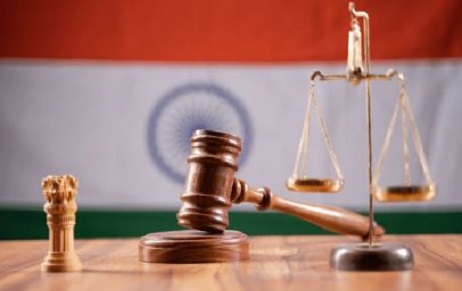ABSTRACT The project employs doctrinal research methods, i.e. secondary research which involves writing on basis…
The Practice of “Defendant Masking”: A Mistake or A Strategy?
Introduction
As we all know that “Masks” are conveniently used for hiding the real identity of a person, similar is the practice of “Defendant Masking.” As the name suggests, the practice of ‘defendant masking’ is a strategy used by the plaintiffs in IPR suits to avoid detection of matter in the cause list by masking the ‘main defendant’ with the other defendant.[1] As a result, the plaintiffs succeed in obtaining injunctions in initial hearings of the suits due to the absence of the main defendant’s counsel. Recently, the Delhi High Court took notice of such practice in the case of Bata India Ltd vs Chawla Boot House and Anr,[2]a case concerning trademark infringement and passing off action. The court took notice of the practice of Defendant Masking in this case and directed stricter measures from the Registry to control it in all IPR suits.
The practice of ‘Defendant Masking’ it not only limited to trademark infringement cases, but also it extends to patent and copyright infringement cases as well.[3] In the case of Microlube India Ltd vs Maggon Auto Centre and Ors,[4] the court identified and criticized the strategy of Defendant Masking and directed the plaintiffs to come to court with clean hands.
What Happened in Bata India Ltd Case?
In the case of Bata India Ltd vs Chawla Boot House and Anr[5], the plaintiff was a well- known manufacturer and seller of footwear. It adopted the mark ‘POWER’ for footwear in the early ’90s and has been using it for almost 50 years. The defendant no. 2, in this case, was Leayan Global Pvt Ltd, who has filed a trademark application for registration of the mark ‘POWER FLEX’ in respect of footwear. Also, an application was filed for the tagline ‘The Power of Real Leather.’ Further, the court found trademark infringement for the mark POWER and the use of the mark POWER FLEX by defendants was held to be sketchy. The court observed that the plaintiff has established reputation and goodwill in the market, took crucial steps for its protection and the mark has become a house mark of the plaintiff. On the other hand, Defendant no. 2 has adopted a clever, tactical and camel-in-the-tent approach to dilute the plaintiff’s mark POWER and sell its own goods under the mark of the plaintiff.
In addition to this, the court criticized the practice of defendant masking in this case. In this suit, although the ‘main defendant’ was Leayan Global but the Chawla Boot House, a shopkeeper based out of Gandhi Nagar, New Delhi who was merely a retailer was impleaded as defendant no. 1. The court noticed this act of plaintiff and said that such practice is usually adopted in order to avoid detection in the cause list. It was an attempt by Bata to ‘mask’ the main defendant Leayan Global under the mask of Chawla Boot House & another and obtain an ex-parte injunction in the first hearing.
The Delhi High Court discouraged this practice of defendant masking by ruling out that such kind of practice having been held to be impermissible by the Division Bench in the case of Microlube India Ltd vs Maggon Auto Centre [1] should not be continued in any manner. The court directed the Registry to seek an undertaking from plaintiffs in all IPR suits where there are multiple defendants, the main defendant contesting the suit should be arrayed as Defendant number 1.[2]
An Insight: Microlube India Ltd vs Maggon Auto Centre and Ors
In this case, the plaintiff filed suit restraining Defendants from using a trademark or label MICO in relation to lubricants as the plaintiff was the user of the said trademark since 1960. The court discouraged the manner in which the parties were arrayed. In this suit, defendant no. 2 was the ‘main defendant’ who has registration of the mark MICO in respect of automotive parts but Maggon Auto Centre was arrayed as ‘main defendant’, who was only a dealer of impugned goods of Defendant no. 2. The court noticed this unhealthy practice of arraying the main defendant as defendant no. 2 or 3 in the suit and naming some retailer as the ‘main defendant’ of the suit. The division bench found the underlying objective behind this practice- “When the counsel for the main defendants scan the list of cases, they would not be able to know as to whether any case has been filed against them so as to enable them to appear on the very first date on which the case is listed before court.”[1]
Similarly, in the present case, the plaintiff did not want the counsel for defendant no.2 to appear on the first date on which the matter was taken up for consideration of grant or non-grant of the ad-interim injunction. As a result, the court took the view that the plaintiff, in this case, has suppressed and concealed material facts, therefore, he is not entitled to any equitable relief.
Conclusion
The practice of Defendant Masking enables the plaintiff to mask the ‘main defendant’ of the suit in the name of any other defendant. As a result, the ‘main defendant’ cannot find his or her name in the cause list and therefore the plaintiff gets an opportunity to obtain an ex-parte injunction in his/her favor.
Due to the
prevalent practice of Defendant Masking these days, the defendants in the suit
do not get ample opportunity to present its defense before the grant of the
ad-interim injunction. Such unhealthy practice on part of plaintiffs violates
the fundamental principle of natural justice- Audi Alteram Partem which says no man should be condemned unheard
or both the sides should be heard before passing any order. In short, a
reasonable opportunity should be given by the judges to both the parties before
passing any order. Natural justice means that justice should be given to both
the parties in a just, fair and reasonable manner. Therefore, the practice of
Defendant Masking should be condemned in all IPR cases in order to prevail the
fundamental principle of natural justice.
Author: Aditi Gupta, Intern at Khurana & Khurana, Advocates and IP Attorneys. In case of any queries please contact/write back to us at [email protected]
References:
[1] Rishabh Mohnot, Delhi High Court Comes Down Heavily on the practice of ‘Defendant Masking’, https://spicyip.com/2019/05/delhi-hc-comes-down-heavily-on-the-practice-of-defendant-masking.html
[2] DE/1368/2019 [3] Sandeep K Rathod, Injunctions in Indian Pharmaceutical Patent Infringement Actions: Some Observations [4] 2008(38) PTC 271(Del) [5] Supra note 1 [6] 2008 (38) PTC 271 (Del) [7] Ensure Main Contesting Defendant Is Listed As Defendant No 1 In IPR Cases: Delhi HC To Registry,https://www.livelaw.in/news-updates/-main-contesting-defendant-defendant-no-1-ipr-cases-delhi-hc-to-registry-144954,



